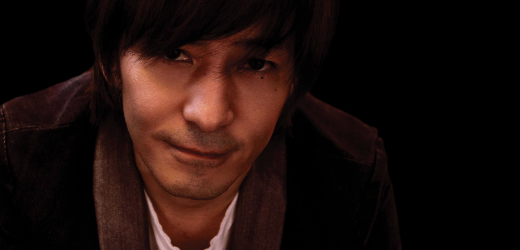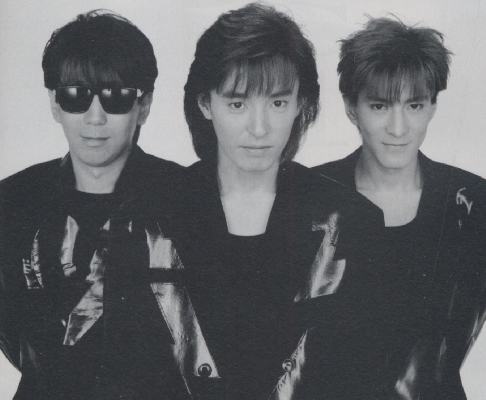Top 10 Tetsuya Komuro Produced Acts

If there is one name to sum up the "90s in J-pop" with, it is "Tetsuya Komuro".
For over a decade Komuro (or "TK" as he is often referred to) dominated the Japanese music industry with his arsenal of bands and solo artists who carried his unique "TK sound". Synths, pounding bass, memorable compositions, and of course, female singers who knew how to belt out the same notes amongst each other all comprised a remarkable era of music that will never be replicated. In total, Tetsuya Komuro's productions have sold over 70 million copies. At one point he was known as the "The Invincible Producer", because every record he touched turned into instant gold, regardless of the talents (or lack thereof) of his performers. Many of today's most famous J-pop artists have TK to thank for their initial success.
This hub highlights the glory that was the TK era. In order to qualify for this list, a band or artist had to at one point been totally "controlled" by TK, or otherwise shaped by him. Thus, many of the artists he produces for today would not count. This list is almost exclusively 90's goodness (with some 80s thrown in for good measure.)
((Years in parentheses indicate the time period in which TK produced for said band or artist.))

#1 - globe (1995 - Present)
As TK's master brainchild, globe is one of his most successful and perhaps his most legendary musical venture. Singer KEIKO (stage name) Yamada was chosen by TK at an audition in 1994 for her unique voice that blasts through ranges and has a chilling, long-lasting effect on those who listen to her. Originally she was paired up with rapper Marc Panther in a unit called Orange, but TK then decided to officially join the group and rename it globe. Through the 90s globe was a mega-success, releasing hard-hitting pop-rock singles that featured TK's usual style fused with KEIKO's screeching vocals and Marc's smooth raps. Around the turn of the millennium, however, globe veered into trance music and saw a slip in their popularity. Still, globe remain one of Japan's most classic and successful groups. Their success was so strong at one point that TK's friend, X JAPAN legend YOSHIKI, joined for a short period of time.
globe has been quiet since TK's arrest for fraud in 2008. Before and since KEIKO has embarked on her own solo career, described further below.

#2 - Namie Amuro (1995-99)
Virtually anybody who has dabbled into J-pop at all knows who Namie Amuro is - during the 90s she was heralded as "The Queen of J-pop" (and many still call her that today) and was the undisputed champion of dance music. Oh, yeah, it was TK's dance music, by the way.
Amuro was originally a member of the Eurobeat group "SUPER MONKEY'S" before breaking off to go solo. TK picked her up as her producer, and together they conquered J-pop. Her single "Can You Celebrate?", penned by TK, still retains the title and record of best-selling single by a female artist in Japan with over 2.2 million copies sold.
TK and Amuro parted ways when Amuro decided to take her music in a different direction. After a few years of lukewarm reception by the public to her new RnB style, Amuro finally made her comeback with her self-proclaimed "hip-pop" sound that fuses pop with hip-hop. Since 2005 she has reclaimed the title of one of the most influential artists currently performing in Japan.

#3 - TRF (1993-96)
TRF (which stands for Tetsuya Rave Factory) is another super popular group of the 90s that was exclusively known for its high-energy dance tracks. What makes TRF stand out from other TK groups is its mini-troupe of dancers, namely CHIHARU, ETSU, and SAM, who twirl and tap to the beats laid down by DJ KOO and vocals provided by front-woman YU-KI. They achieved massive success in the early 90s with the TK penned songs EZ DO DANCE and Overnight Sensation amongst others. They lost some of their popularity in the later 90s however when they began experimenting with other dance elements.
TRF went into hiatus around the turn of the millennium but made a comeback in 2006, although they have never reclaimed their former glory. But while their new singles and albums don't sell anywhere near where they used to, they're still crowd-drawers live and the general public still enjoys jammin' to a nostalgic TRF tune, provided by TK, of course.

#4 - TM NETWORK (1984-Present)
Before there was globe, or TRF, or even Namie Amuro and Ami Suzuki, there was TM NETWORK, TK's original band. Started with his friends in high school, TM NETWORK struggled through the 80s until their big break with the City Hunter anime theme song "Get Wild" in 1987. Since then they've been considered one of Japan's most influential and classic bands, including numerous guest support appearances in recordings and lives with the likes of Tak Matsumoto and Cozy Kubo.
TM NETWORK went through a momentary name change to TMN in the early 90s before disbanding in 1994. TK would later go on to found globe and become the biggest producer in J-pop history. However, in 1999 TM NETWORK reunited under their old name and have been considered "together" ever since. Some of their other most recognizable songs include "Self Control" and "SEVEN DAYS WAR".

#5 - Ami Suzuki (1998-2000)
During the late 90s TK was still considered a powerful producer, even though most of his previous solo artists, such as Namie Amuro and hitomi, had parted ways with him over creative differences. TK was given another chance to mold a young pop star in the guise of Ami Suzuki, a recent audition winner for Sony Music Entertainment (most of TK's other musical ventures until this point had been with avex trax). Suzuki's first several singles (including classic hits such as "love the island" and "all night long") managed to crack the top five, but it wasn't until the TM NETWORK cover "BE TOGETHER" that Suzuki finally saw a single at #1. (Before, her debut album "SA", composed almost entirely by TK, had reached #1 on the album charts.)
Suzuki's last single with Sony and TK showed her taking more control over her music, and it seemed that it was about time for TK to part with another producee. That did happen, but in a completely unexpected way - in 2000 Suzuki's parents sued the company for fraud charges and Suzuki ended up blacklisted by the music industry at the height of her career. In a turn of classic irony, Suzuki was later picked up by Max Matsuura of avex trax and TK's boss.

#6 - hitomi (1994-97)
The first of TK's consistently successful solo acts was not Ami Suzuki or even Namie Amuro, but "hitomi", a once unknown model that he met by chance and decided would make a good performer. Unlike most of his other performers, however, hitomi wrote almost all of her own lyrics alongside TK's compositions and productions. Her debut single "Let's Play Winter" didn't make any waves, but her third single "CANDY GIRL" became an instant hit. By her second album "by myself" hitomi was considered one of the major players of J-pop. Her success with TK continued through her third album "deja-vu", after which she decided to part ways with her producer and take control of her entire image.
hitomi continued to enjoy her own independent success even without TK. Other artists such as Namie Amuro managed to do this as well, but in their cases it took a few sluggish years to achieve. hitomi had already established herself as a singer-songwriter from the get-go, carving her niche with or without the producer who "created" her.

#7 - (TRUE) Kiss Destination (1998-2001)
Probably one of the most "unknown" acts in the TK Family is TRUE KiSS DESTiNATiON (later just "KiSS DESTiNATiON), a unit featuring TK himself and hip-hop singer Asami Yoshida. They started with RnB inspired tracks (that still retained the TK 'sound") before delving into more familiar piano ballads and dance tracks. Although a TK project, TKD never really "took off" as much as TK's other acts did. This could be attributed to a different sound and image or to the fact that by the late 90s TK's invincible touch was beginning to wane a bit.
TKD's demise came in the form of friendly relations between the two members. TK and Yoshida married, had a child, and divorced in a relatively short amount of time. After their divorce they naturally separated professionally as well, although Yoshida would later debut as a hip-hop artist under the moniker "Asami".
It's said that TK's financial troubles in recent years came primarily from large alimony payments to Yoshida. So even after splitting over a decade before, Yoshida is still affecting TK's business and musical ventures.

#8 - KEIKO (KCO)
Although primarily a member of globe, Keiko Yamada has also enjoyed success as a TK produced solo act under the name KCO. While never personally reaching the status of her own group or TK's other solo acts of the 90s, Yamada has nevertheless worked diligently with her husband - they married shortly after his divorce with Yoshida - to produce high quality music. During TK's legal woes Yamada admitted that one of the reasons she put out her solo album in 2008 was to help raise money to pay her husband's alimony dues. There were rumors that they had divorced (and thus probably ending Yamada's affiliations with TK, and even more, the end of globe) but she later confirmed that those were false and that she intends to stay with her husband.

#9 - Tomomi Kahala (1995-98)
There isn't quite a story like Kahala's elsewhere in the TK Family, even though she shares the early fame of Namie Amuro and the origins of hitomi. Also scouted while working for a magazine, Kahala gained early success with her second single "I BELIEVE", followed by mega-hits "I'm proud" and "Save your dream". Her albums likewise saw massive success all the way through the late 90s.
Where her story diverges is related to her fate and her relationship with TK. Although TK would later go on to marry another band mate (Yoshida), Kahala was first involved him from the early stages of her career - indeed, it was TK's suggestion that she change her last name from her legal "Shimogawara" to "Kahala" so they would have the same initials in English. When a gossip magazine published articles accusing Kahala and TK of doing drugs, her career took a dive and TK called their relationship off. Kahala never quite recovered from the breakup and fell deeper into drugs and eventually lost most of her contracts due to unreliability. She has semi-successfully revived her career a couple of times, but overall Kahala is thus far the one tragic story of the TK Family.

#10 - H Jungle with t (1995-96)
The story of this unit is brief but left an impact on J-pop to last for decades to come. After finding success elsewhere, artist Masatoshi Hamada approached TK to create a unit with him. They intended for their debut single "WOW WAR TONIGHT ~Toki ni wa Okose yo Movement~" to be their only one, but after it sold over two million copies and became the #1 single of 1995 the unit decided to release two more singles and a remix album before officially disbanding.
Although brief, H Jungle with t is today considered one of J-pop's greatest units. Their debut song is still sung today by other artists and in karaoke booths all across the nation and is considered a true J-pop classic.
In Retrospect
Today Tetsuya Komuro is regarded as J-pop's greatest producer for his contributions in the 90s, although his career continues despite declining popularity and legal setbacks. In modern J-pop he is known for working with groups and artists such as AAA and "Queen of J-pop" Ayumi Hamasaki. But even though other producers come and go, there will probably never be an "invincible" one again.








